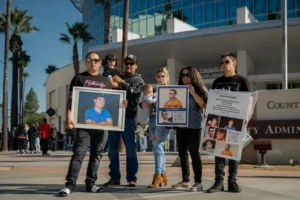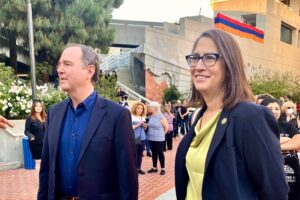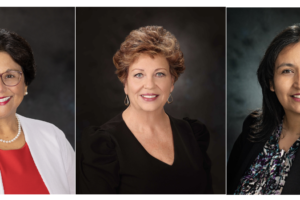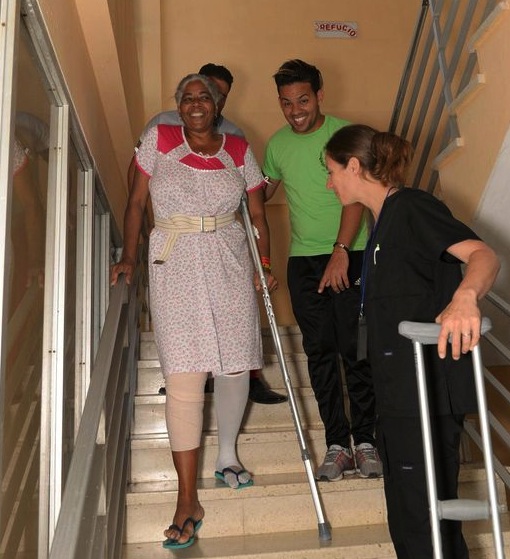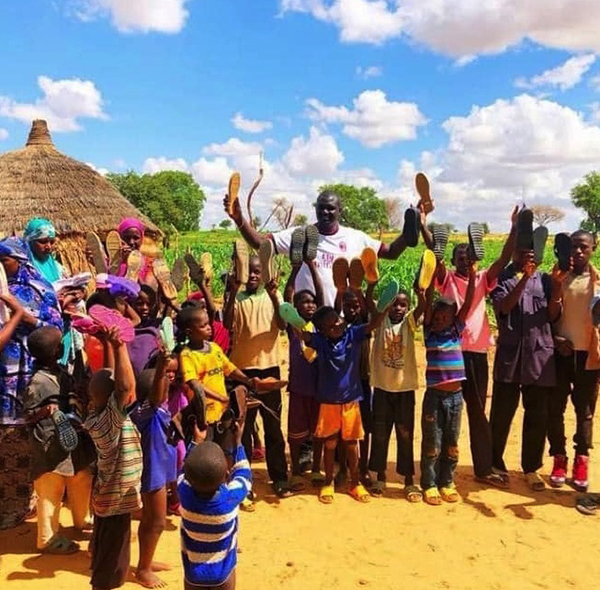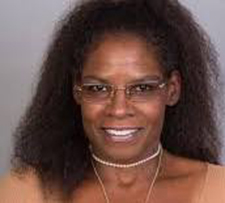MAKING A DIFFERENCE
By Darlene Donloe
Contributing Writer
The ability to put one foot in front of the other can easily be taken for granted by some, but for others, it can be a painful and even futile undertaking.
There are those for whom the privilege of walking has become unimaginable.
For them, there is help at Operation Walk LA, an all-volunteer medical humanitarian organization that provides the gift of mobility through life-changing joint replacement surgeries at no cost for those in need in the U.S. and globally.
It was founded in 1996 by leading orthopedic surgeon, Dr. Lawrence D. Dorr, who wanted to use his skills to help impoverished people disabled and suffering from joint-related conditions.
The organization, which has grown into an international charity, provides life-changing knee and hip surgeries.
Jeri Ward, 67, is a nurse and the executive director of Operation Walk LA. Since its inception, she worked closely with Dr. Dorr until his death Dec. 28 at age 79.
Ward, who is continuing Dorr’s work, describes him as “a tough taskmaster.”
“I heard him before I saw him,” said Ward, who met Dr. Dorr in 1983. “He always had a great big smile and laugh. He wanted you to take good care of his patients. I figured he was tough because he wanted the best for his patients.”
A cast technician before she became a nurse, Ward said Dorr taught her to read X-rays before asking her to join him at USC University Hospital, now Keck Medical Center, to start the Arthritis Institute.
“One day he said, ‘We’re going to go to Cuba because a lot of people need joint replacements,’” said Ward, who is originally from Oakland. “I was scared. When I was in high school, I thought Cuba was going to bomb us.”
Ward said they got a bunch of supplies donated and in 1996 they took their first trip to Cuba, where they worked for two weeks in a hospital she called “dismal.”
In 1997, they went to China, then Nepal. After that trip, the work they were doing to help the needy went public, and they were bombarded with requests.
“We were getting so many requests from other countries,” said Ward, who, at one time took three or four trips a year. “Our goal was, if you’re taking 9,000 pounds of material that was going to be needed in that country, you have to make it worth your while. Our goal was to help 50 to 60 patients. That’s what we wanted to do.”
Operation Walk LA has provided surgeries to the needy in El Salvador, the Philippines, Tanzania, Vietnam, China, Nepal, Cuba, Guatemala and Nicaragua.
Today, Operation Walk LA has expanded to 20 teams of doctors. Through Operation Walk USA, numerous others have emerged throughout the states and around the world.
Each Operation Walk LA trip has a goal of completing 50 to 60 operations over three days. The other days are filled with providing education to the doctors in that country so they will know how to take care of the patients once Operation Walk leaves. Families are also trained on how to provide rehabilitation or therapy.
During each international surgical mission, Operation Walk educates in-country orthopedic surgeons, nurses, physical therapists and other health care professionals on the most advanced treatments and surgical techniques for diseases of the hip and knee joints. The practice creates a lasting contribution to patient care in developing countries.
Operation Walk LA boasts 17,000 patients, 25 countries, 100 trips, 20 teams, and $500,000 worth of volunteer time donated for each mission.
The trips are for a week at a time because the organization uses doctors who volunteer during their own vacation weeks. The trips usually include six surgeons, four anesthesiologists and two internal medicine doctors.
The patients, who can’t afford the knee or hip implants, are recommended by local surgeons who don’t have experience in hip or knee replacement surgery.
Operation Walk helps older people in chronic pain, average age 60-plus, while other surgical missions typically help children or younger people. As a result of the life-changing surgeries, the patients, once considered burdens on their families and villages, walk from the hospital.
Ward said who they are able to provide with implants is important.
“It matters,” she said. “We’re looking for a poor population. We want someone we can really help so they can go back to work. Whoever we help has to be able to keep themselves clean and do the rehabilitation.”
After the surgery, Ward said they get the patients up quickly.
“When I started working with Dr. Dorr, as time progressed he was proactive,” Ward said. “We would get people out of bed within a couple of hours.”
The cost to operate Operation Walk, according to Ward, is about $150,000 per trip. They get a lot of items donated, including perpetual equipment, planks, medicine, meals, cargo shipping and visas.
Since the pandemic hit last March, Operation Walk hasn’t been able to make its annual trips.
“We had to cancel our trip to Nicaragua last March,” Ward said. “We also had to cancel our trip to Guatemala last August. We are planning to go to Guatemala this year in the last week of August.”
Operation Walk USA doesn’t offer help only to the unfortunate in foreign countries.
“Operation Walk USA works with surgeons in the United States,” Ward said. “There are poor people here without insurance who are in the same boat.”
“Making a Difference” is a weekly feature profiling organizations that are serving their communities. To propose a “Making a Difference” profile, send an email to newsroom@wavepublication.com.
Darlene Donloe is a freelance reporter for Wave Newspapers who covers South Los Angeles. She can be reached at ddonloe@gmail.com.




